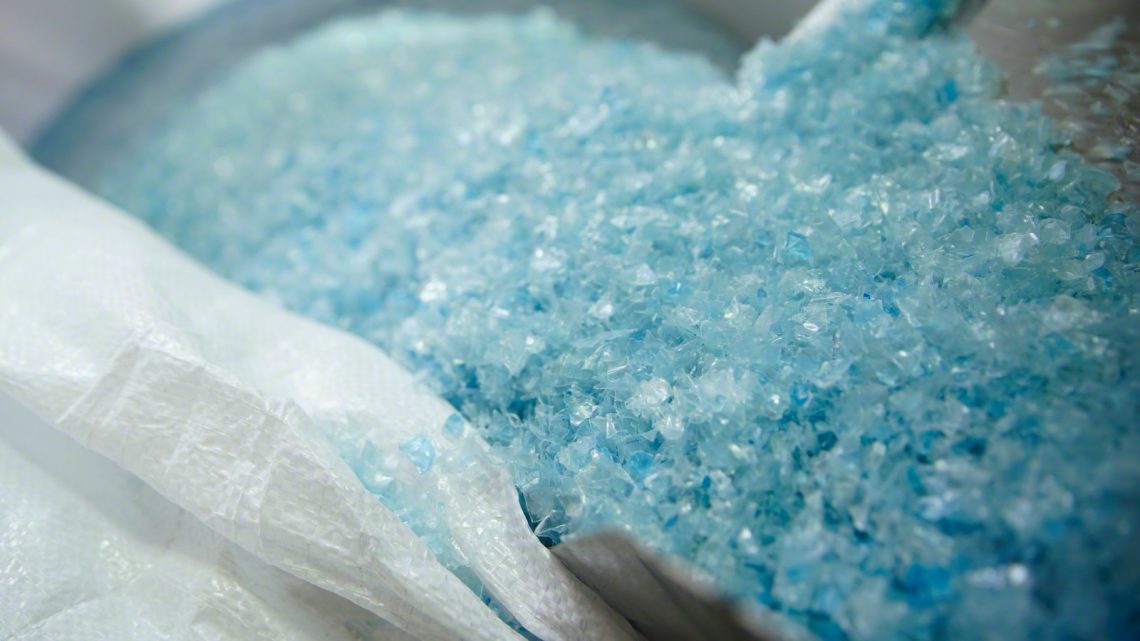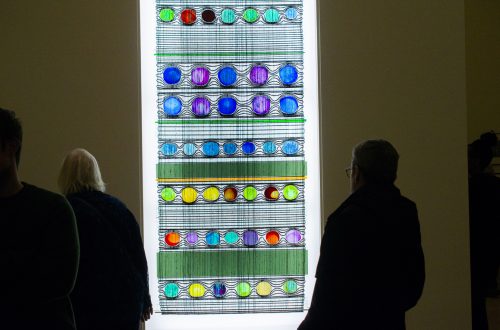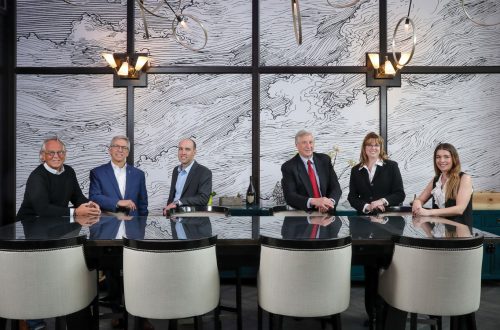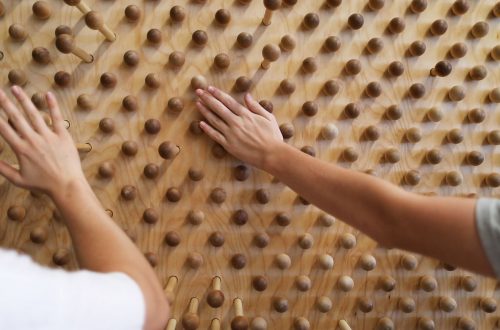Building upon its innovative and ergonomic office furnishings, the Steelcase Inc. name has come to embody a unique corporate and industrial value for sustainability. Whether through surface material partners specializing in sustainable leather or timber, or a sweeping carbon negative initiative—built off of its recent achievement of operational carbon neutrality—Steelcase Inc. of Grand Rapids, Michigan has been invested in sustainable materials and processes since inception.
In one of its newest projects, Steelcase has partnered with Duvaltex, a Québec-based, leading North American office furniture textile manufacturer and engineer, and its CLEAN IMPACT TEXTILES™ brand, to create a screen and panel fabric called Intersection, which is made from Upcycled Marine Plastic.
The fabric serves as an aesthetically and technically viable material for design application and is a representation of the union Steelcase seeks between the material and the sustainable. Through advances in technology and collaboration among industries and supply chains, there is much to explore in this relationship. Often, the catalyst for doing so is a personal drive to protect the environment or lessen damage to it, and this is the case for the initiatives that have, in part, made Intersection possible.
SEAQUAL INITIATIVE, for example, works with ocean clean-ups worldwide to bring value to the waste they recover, through converting it into Upcycled Marine Plastic that is a fully traceable, raw sustainable material that can then be used by brands and manufacturers to create sustainable products. So far, approximately 99 tons of marine litter have been transformed into Upcycled Marine Plastic, and the SEAQUAL INITIATIVE estimates that about 600 tons of waste have been cleaned from oceans.
Steelcase and Duvaltex partnered with SEAQUAL to help create the material composition for Intersection fabric. The process begins on SEAQUAL’s end, with collecting ocean waste and delivering it to the organization’s approved facilities, where plastic is separated from other material types.
Once sorted, the plastic is cleaned and transformed into Upcycled Marine Plastic, while remaining waste like metal and glass are disposed of or recycled through traditional routes. From here, the plastic is taken by organizations like Steelcase and Duvaltex, which have returned it to industry in the form of SEAQUAL® YARN, which is then woven into Intersection fabric. For every yard of Intersection, Steelcase states half a pound of plastic waste is removed from the ocean.
Besides its sustainable and technical journey to creation, Intersection also meets visual and acoustic standards for modern panel fabrics, as an increasingly architectural ingredient in the workplace. As global pandemic continues, workplaces are retrofitting areas to serve new office spatial standards, especially using barriers like panels.
In terms of material design, the crossed pattern woven alongside subtle pucker perforations makes a rich, three-dimensional visual material that is offered in fresh, contemporary-fitting shades like “Mousse,” “Saffron,” and “Green Citrine.” Intersection is available in North America and can be applied to a range of screens and panels that include VIA, Mackinac, and Steelcase Flex.
In keeping with its tradition of innovating eco-friendly solutions, Steelcase will continue exploring more solutions in product development, and even the possibility of using SEAQUAL® YARN in other new materials.
Text: R. Collins
Photography: Steelcase Inc.






